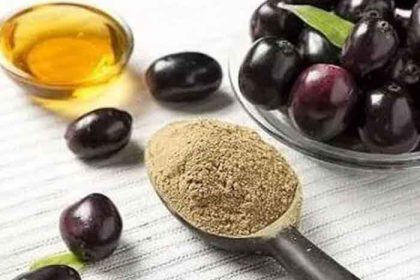Carrot benefits for skin and men and women and hair
Carrot benefits
Carrot benefits for skin and men and women and hair on Nichooli site. We hope this article will be of interest to you.
Carrots are a nutritious vegetable packed with beta-carotene, vitamins, minerals, and antioxidants, offering a wide array of health benefits. They support eye health by reducing the risk of macular degeneration and improving vision, especially in low light. Carrots enhance immune function and skin health, aid in digestive health through their high fiber content, and contribute to heart health by helping control blood pressure and reduce cholesterol levels. They’re also beneficial for weight management due to their low calorie and high fiber content, which promotes fullness. Additionally, carrots have antioxidant properties that can protect against oxidative stress, potentially reducing the risk of chronic diseases like heart disease, diabetes, and certain cancers. They can also improve dental health by cleaning teeth and gums and fighting bacteria in the mouth. However, excessive consumption can lead to side effects such as carotenemia, causing the skin to turn yellowish-orange, and potential digestive issues due to their high fiber content. Carrots might also interfere with blood sugar control and interact with certain medications like blood thinners. Despite these possible side effects, carrots are generally beneficial when consumed in moderation as part of a balanced diet.
Carrot benefits
Carrots are a highly nutritious vegetable offering numerous health benefits. They are rich in vitamins, minerals, fiber, and antioxidants, which contribute to various aspects of health:
Rich in Beta-Carotene: Carrots are well-known for their high beta-carotene content, which the body converts into vitamin A. Vitamin A is essential for maintaining good vision, especially in low light. It also supports a healthy immune system and skin health.
Eye Health: Beyond beta-carotene, carrots contain other eye-friendly nutrients like lutein and zeaxanthin, which may reduce the risk of age-related macular degeneration, a common cause of age-related vision loss.
Immune System Support: The antioxidants and vitamins in carrots, including vitamin C, help bolster the immune system, making the body more capable of fighting off infections and diseases.
Digestive Health: Carrots are a good source of dietary fiber, which is important for maintaining a healthy digestive system. Fiber helps regulate bowel movements and may aid in preventing constipation and reducing the risk of digestive disorders.
Heart Health: The fiber, potassium, and antioxidants in carrots can contribute to cardiovascular health. Potassium helps control blood pressure, while the fiber can help reduce blood cholesterol levels, lowering the risk of heart disease.
Weight Management: Being low in calories and high in fiber, carrots can increase feelings of fullness and reduce calorie intake in meals, making them an excellent addition to a weight management diet.
Antioxidant Effects: Carrots contain various antioxidants, such as beta-carotene, lutein, and polyacetylenes, which can help protect the body against oxidative stress. This reduces the risk of chronic diseases such as heart disease, diabetes, and certain cancers.
Dental Health: Crunching on raw carrots can help clean your teeth and gums by removing food particles and plaque. The minerals in carrots also contribute to fighting bacteria in the mouth, which can help prevent cavities and gum disease.
Skin Health: The nutrients in carrots, especially vitamin A and antioxidants, can contribute to healthier skin. They may protect against skin damage, premature aging, and improve skin appearance.
Reduced Cancer Risk: Some studies suggest that the antioxidants in carrots may provide a protective effect against certain types of cancer, including lung, colorectal, and prostate cancer, due to their ability to combat oxidative stress.
Carrot side effect
Carrots are generally considered a healthy food, high in beta-carotene (which the body converts to vitamin A), fiber, antioxidants, and various other nutrients. However, like any food, they can have potential side effects, especially if consumed in excessive amounts:
Carotenemia: Eating too many carrots over a period can lead to carotenemia, a condition where the skin turns slightly yellowish-orange, particularly on the palms, soles, and face. This is due to the high level of beta-carotene in carrots. Carotenemia is not harmful and resolves once the intake of beta-carotene is reduced.
Allergic Reactions: Although rare, some people may have an allergic reaction to carrots. Symptoms can range from mild (like oral allergy syndrome, where there is itching or tingling in the mouth after eating carrots) to more severe allergic reactions, including anaphylaxis.
Digestive Issues: The high fiber content in carrots can cause digestive issues such as gas or bloating in some individuals, especially when consumed in large quantities.
Interference with Blood Sugar Control: Carrots, particularly when juiced or eaten in large amounts, can increase blood sugar levels due to their natural sugars. While they have a medium glycemic index, excessive consumption might be a concern for individuals managing their blood sugar levels, such as those with diabetes.
Vitamin A Toxicity: While it’s rare from eating whole carrots, consuming an excessive amount of carrot juice or carrot-based supplements could contribute to hypervitaminosis A, an overdose of vitamin A. Symptoms might include vision problems, bone pain, and skin changes.
Dental Problems: Consuming a large number of carrots, especially as snacks, can sometimes lead to dental issues like cavities, particularly in children, due to the natural sugars in carrots.
Interactions with Medications: Carrots can interact with certain medications, such as blood thinners, due to their vitamin K content, which plays a role in blood clotting.
Carrot benefits for skin
Carrots offer numerous benefits for the skin, largely due to their high content of vitamins, minerals, and antioxidants. Here are some of the key ways in which carrots can contribute to healthy skin:
Promotes Skin Health with Vitamin A: Carrots are rich in beta-carotene, which the body converts into vitamin A. Vitamin A is crucial for repairing skin tissues and protecting against various skin problems. It helps maintain skin moisture, reducing the risk of dry skin, psoriasis, and other skin conditions.
Anti-aging Properties: The antioxidants in carrots, including beta-carotene, fight against free radicals in the body, reducing oxidative stress and slowing down the aging of cells. This can help reduce the appearance of wrinkles, fine lines, and other signs of aging.
Improves Complexion: The nutrients in carrots can help improve the skin’s complexion. Vitamin C, present in carrots, contributes to collagen production, which is vital for maintaining skin elasticity and vibrancy.
Skin Protection: Beta-carotene in carrots acts as a natural sunblock. While it doesn’t replace sunscreen, it does provide some degree of protection against UV rays, which can lead to skin damage and premature aging.
Healing Properties: Carrots have been known for their wound-healing abilities due to their high content of antioxidants and vitamin C, which contribute to the body’s ability to heal faster and regenerate skin.
Acne Reduction: The antiseptic qualities of carrots can help prevent and reduce acne. Drinking carrot juice or applying carrot pulp as a face mask can help clear the skin and reduce blemishes.
Hydration: Carrots have a high water content, which can help hydrate the skin and maintain its moisture balance, leading to a healthier and more radiant appearance.
Skin Detoxification: Carrots contain certain phytochemicals that can help detoxify the body, including the skin. This can lead to a clearer, more radiant complexion by removing toxins that may contribute to skin dullness and imperfections.
Carrot benefits for hair
Carrots offer a range of benefits for hair health, primarily due to their rich nutrient profile, which includes vitamins, minerals, and antioxidants. Here are some of the key benefits carrots can provide for your hair:
Promotes Hair Growth: The vitamin A in carrots helps produce healthy sebum, which keeps the scalp and hair moisturized. This is crucial for maintaining healthy hair and promoting hair growth.
Strengthens Hair: Carrots are rich in vitamins B, C, and E, along with phosphorus and potassium, all of which contribute to hair strengthening, preventing breakage, and improving hair texture.
Improves Scalp Health: The antioxidants and vitamin C in carrots help improve blood circulation to the scalp, which enhances scalp health, potentially reducing issues like dandruff and itchiness.
Prevents Hair Loss: The nutrients in carrots can help prevent hair loss by strengthening hair follicles, reducing hair thinning, and encouraging thicker, more vibrant hair.
Enhances Hair Luster: Regular consumption of carrots or application of carrot oil can add shine and improve the overall appearance of hair, making it look more lustrous and healthy.
Protects Hair: Antioxidants in carrots protect hair from external damages like pollution, UV rays, and harsh chemicals, by neutralizing free radicals that can weaken and damage hair.
Supports Hair Repair: Vitamin A and E in carrots can help repair hair damage and reduce the effects of hair stressors, promoting the regeneration of hair cells.
Are raw carrots good for you?
Carrot is one of the most popular vegetables, which is very useful in terms of nutrition. Consuming raw carrots can be very beneficial for the health of the body, and some of its benefits include: Carrots contain vitamin A, which is very useful for maintaining eye health. This vitamin is responsible for maintaining the health of the retina and maintaining vision in low-light conditions. Raw carrots strengthen the immune system and defend against various diseases because of vitamin C, antioxidants, and fiber that can be used daily. Consuming raw carrots helps digestion because it contains dietary fiber. Carrots have a small amount of sugar, and for this reason, containing useful dietary fiber, facilitate blood sugar control. Raw carrots contain vitamins A and C, which are useful for maintaining skin health and preventing premature aging.
Benefits of eating carrots on an empty stomach
Eating carrots on an empty stomach can offer several health benefits, as doing so may enhance the absorption of certain nutrients and provide a gentle way to stimulate digestion for the day. Here are some potential benefits:
Boosts Digestive Health: Consuming carrots, which are high in fiber, on an empty stomach can help regulate the digestive system. The fiber helps in promoting bowel movements and preventing constipation, making it a good choice for starting your day with digestive support.
Enhances Nutrient Absorption: Eating carrots first thing in the morning might enhance the absorption of beta-carotene, the precursor to vitamin A, due to the minimal interference from other foods. Vitamin A is essential for maintaining vision health, immune function, and skin integrity.
Detoxification: Carrots have a diuretic effect and help in flushing out toxins from the body. Eating them on an empty stomach can stimulate the kidneys and assist in the detoxification process, contributing to overall health and well-being.
Antioxidant Boost: Carrots are rich in antioxidants, including beta-carotene, lutein, and zeaxanthin. Consuming them on an empty stomach might maximize the body’s ability to utilize these antioxidants, protecting cells from oxidative stress and reducing the risk of chronic diseases.
Weight Management: Starting your day with a low-calorie, nutrient-dense food like carrots can aid in weight management. Their high fiber content can promote a feeling of fullness, reducing the likelihood of overeating later in the day.
Stabilizes Blood Sugar: The fiber in carrots can help slow down the absorption of glucose, contributing to more stable blood sugar levels, which is particularly beneficial for individuals managing diabetes or those concerned about blood sugar spikes.
Hydration: Carrots have a high water content, which can help hydrate the body first thing in the morning, supporting overall metabolism and bodily functions.
Supports Immune Function: The vitamin C and antioxidants present in carrots support the immune system. Consuming them on an empty stomach may provide an early boost to the body’s defense mechanisms.
Benefits of carrots for eyes
Carrots are well-known for their benefits for eye health, primarily due to their high content of beta-carotene and other nutrients. Here are some of the key ways in which carrots can support and enhance eye health:
Rich in Beta-Carotene: Carrots are a leading source of beta-carotene, a type of vitamin A that plays a crucial role in vision. It helps maintain a clear cornea, which is the outside covering of the eye. Beta-carotene is converted by the body into vitamin A, which is essential for converting light into a signal that can be transmitted to the brain, enabling good vision, especially in low light conditions.
Prevention of Vitamin A Deficiency: Vitamin A deficiency is a leading cause of preventable blindness in children worldwide. Regular consumption of carrots, which are rich in vitamin A, can help prevent vitamin A deficiency and its associated vision problems, including night blindness.
Contains Lutein: Carrots, especially yellow carrots, are a good source of lutein, an antioxidant that is believed to be beneficial for eye health. Lutein helps protect the eyes from harmful light exposure and may reduce the risk of age-related macular degeneration (AMD), a common condition in older adults that can impair vision.
Supports Overall Eye Health: Vitamin A and antioxidants in carrots can also help protect the surface of the eye (cornea) and contribute to overall eye health. Adequate intake of vitamin A is necessary to support the functioning of the conjunctival membranes and cornea.
Reduces Risk of Eye Diseases: The antioxidants in carrots, including beta-carotene, lutein, and zeaxanthin, can help reduce the risk of eye diseases. These antioxidants protect the eyes from oxidative stress, which can lead to conditions like cataracts and AMD.
Enhances Night Vision: While the idea that carrots can significantly improve night vision is a myth, vitamin A is indeed vital for seeing in low-light conditions. A deficiency in vitamin A can lead to night blindness, so consuming carrots can help maintain normal vision at night.
Carrot benefits for men
Carrots offer several health benefits that are particularly beneficial for men, given their nutritional content and the specific health concerns men often face. Here are some of the key benefits:
Heart Health: Carrots are rich in antioxidants and fiber, which are beneficial for heart health. The fiber helps lower blood cholesterol levels, while the antioxidants, such as beta-carotene, reduce oxidative stress and inflammation, factors associated with reduced risk of heart disease, which is a major health concern for men.
Prostate Health: Some studies suggest that the beta-carotene in carrots might be linked to a reduced risk of prostate cancer, one of the most common cancers in men. While more research is needed to establish a direct connection, the nutrients in carrots support overall health, which can contribute to cancer prevention.
Weight Management: High in fiber and low in calories, carrots can be a great addition to a weight management or weight loss diet. Maintaining a healthy weight is crucial for men to reduce the risk of several chronic diseases, including heart disease and diabetes.
Vision Health: The vitamin A and beta-carotene in carrots are essential for maintaining good vision. This is particularly important as men age and the risk of eye diseases like age-related macular degeneration increases.
Immune System Support: Carrots contain various vitamins and minerals, such as vitamin C, vitamin B6, and potassium, that play important roles in supporting the immune system. A strong immune system is crucial for everyone, including men, to combat infections and diseases.
Fertility Support: The antioxidants in carrots, including beta-carotene, have been linked to improved sperm quality and motility. Oxidative stress is known to be a cause of sperm dysfunction and infertility, so consuming antioxidant-rich foods like carrots may support reproductive health in men.
Skin Health: The nutrients in carrots, particularly vitamins A and C, support skin health by promoting repair and maintenance of skin tissue and protecting the skin from UV damage. Healthy skin is not only important for appearance but also for overall health, as the skin is the body’s largest organ and serves as a critical barrier against infection and disease.
Digestive Health: The dietary fiber in carrots helps maintain a healthy digestive system, reducing the risk of constipation and promoting a healthy gut microbiome. Good digestive health is essential for overall well-being and can prevent digestive disorders, which are common concerns for many men.
Carrot benefits for women
Carrots offer numerous health benefits that can be particularly advantageous for women due to their unique nutritional composition. These benefits include:
Nutritional Support During Pregnancy: Carrots are high in beta-carotene, which the body converts into vitamin A, essential for fetal development and the maintenance of maternal health during pregnancy.
Bone Health: The vitamin K in carrots plays a crucial role in bone health, which is particularly important for women to prevent osteoporosis, especially post-menopause.
Breast Cancer Prevention: Some studies suggest that the antioxidants in carrots, such as beta-carotene, may help reduce the risk of various types of cancer, including breast cancer, which predominantly affects women.
Skin Health: The vitamin A and antioxidants in carrots can help protect the skin from sun damage, reduce signs of aging, and promote a healthy complexion, which is often a concern for women due to hormonal changes that can impact skin health.
Weight Management: High in fiber and low in calories, carrots can help promote a feeling of fullness, making them an excellent snack for weight management or weight loss efforts, which can be a concern for women at various stages of life.
Heart Health: The potassium and antioxidants in carrots can help lower blood pressure and reduce the risk of heart disease, which is important as women’s risk of heart disease increases with age, particularly after menopause.
Immune Support: The variety of vitamins and antioxidants in carrots, including vitamin C, support the immune system, which is crucial for everyone, including women, to maintain overall health and well-being.
Eye Health: Beta-carotene, lutein, and zeaxanthin in carrots contribute to eye health, reducing the risk of age-related macular degeneration and cataracts, which can be of particular concern for women as they age.
Digestive Health: The dietary fiber in carrots helps maintain a healthy digestive system, reducing the risk of constipation and supporting gut health, which can be beneficial for women, especially during pregnancy or due to hormonal fluctuations.
Eating raw carrots at night
Eating raw carrots at night is generally not a problem for most people, but for some, it may cause digestive problems. For example, for people who have digestive problems such as cramps and heartburn, or gastric reflux, consuming raw carrots at night may harm them. Also, for some people, eating raw carrots at night can cause sleep problems. For some people, raw carrots may cause a state of wakefulness and increase energy, which in turn causes sleep problems. In general, eating raw carrots at night is fine for most people, but if you have digestive problems or sleep problems, it’s best to avoid eating them at night. Also, consuming cooked carrots at night is also a good option, which is better than raw carrots for some people.
Eating raw carrots may cause stomach ache
Eating raw carrots can cause stomach ache in some individuals, and this can be due to several reasons:
High Fiber Content: Carrots are rich in dietary fiber, which is essential for digestive health. However, consuming a large amount of fiber, especially if you’re not used to it, can cause digestive discomfort, including stomach aches, bloating, and gas.
Carbohydrate Intolerance: Carrots contain carbohydrates, such as sugar and starch. Some individuals may have difficulty digesting certain types of carbohydrates, leading to stomach pain, bloating, and other digestive issues.
Oral Allergy Syndrome (OAS): Some people may experience OAS, a type of food allergy that affects the mouth and throat, after eating raw carrots. Symptoms can include itching or tingling in the mouth, throat, and lips, which can extend to discomfort in the stomach for some individuals.
Pesticide Residue or Contaminants: If raw carrots are not washed properly, they may have residue from pesticides or other contaminants that can upset the stomach.
Irritable Bowel Syndrome (IBS): Individuals with IBS or other sensitive digestive conditions may find that eating raw carrots triggers symptoms due to the high fiber content or the specific types of carbohydrates in carrots.
Chewing and Digestion: Eating raw carrots without chewing them thoroughly can lead to larger pieces entering the stomach, which can be harder to digest and may cause discomfort.
To minimize the risk of stomach ache when eating raw carrots, consider the following tips:
Start with small amounts if you’re not used to high-fiber foods and gradually increase your intake to allow your digestive system to adjust.
Ensure carrots are washed thoroughly to remove any pesticide residue or contaminants.
Chew carrots well to aid in digestion and reduce the size of pieces that reach your stomach.
If you have a known food allergy or sensitivity, consult with a healthcare provider for personalized advice.
If you consistently experience stomach aches after eating raw carrots, it may be worth consulting with a healthcare professional to determine the underlying cause and receive personalized dietary advice.
Chest pain after eating raw carrots
Experiencing chest pain after eating raw carrots is unusual and may be indicative of an underlying issue that needs medical attention. While it’s less common for carrots to cause chest pain directly, there are a few possibilities to consider:
Food Allergies or Intolerances: If you have an allergy or intolerance to carrots, consuming them might trigger an immune response or digestive distress, which can manifest in various ways, including discomfort or pain in the chest area. This could be due to oral allergy syndrome (OAS), where certain raw fruits and vegetables cause reactions in some people with pollen allergies.
Esophageal Issues: Problems with the esophagus, such as acid reflux or gastroesophageal reflux disease (GERD), can lead to chest pain after eating. Eating raw carrots, especially if not chewed well, might aggravate these conditions, leading to discomfort.
Digestive Problems: Sometimes, digestive issues can cause symptoms that are felt in the chest. For example, gas buildup in the digestive tract due to high-fiber foods like carrots might cause pressure and discomfort that is perceived as chest pain.
Psychosomatic Responses: In some cases, anxiety or stress related to eating certain foods can lead to physical symptoms, including chest pain. This is more about the psychological response to eating rather than the physical impact of the food itself.
Eosinophilic Esophagitis (EoE): This is a chronic immune system disease that can occur in some people. It can cause inflammation of the esophagus and is triggered by certain foods, leading to symptoms like chest pain, difficulty swallowing, and heartburn.
Benefits of eating carrots on empty stomach during pregnancy
Eating carrots on an empty stomach during pregnancy can offer several health benefits due to their rich nutrient profile. However, it’s essential to consider moderation and balance in your diet. Here are some potential benefits:
Rich Source of Beta-Carotene: Carrots are high in beta-carotene, which the body converts into vitamin A, crucial for the development of the baby’s organs, bones, and eyes. Vitamin A also supports the immune system and cell growth.
Fiber for Digestive Health: The high fiber content in carrots can help maintain regular bowel movements, which is particularly beneficial during pregnancy when digestive issues like constipation are common.
Hydration: Carrots have a high water content, which can help keep you hydrated. Proper hydration is essential during pregnancy for maintaining amniotic fluid levels and supporting increased blood volume.
Antioxidants for Immune Support: Carrots contain various antioxidants, such as vitamin C and beta-carotene, which can support the immune system. A strong immune system is crucial during pregnancy to protect both the mother and the developing fetus.
Folate Content: While carrots are not the highest source of folate, they do contribute some amount to your diet. Folate is vital during pregnancy for preventing neural tube defects in the developing baby.
Gentle on the Stomach: Eating carrots on an empty stomach can be gentle for those experiencing morning sickness, as they are not acidic and are relatively easy to digest.
Blood Sugar Control: The fiber in carrots can help regulate blood sugar levels, which is important to prevent gestational diabetes, a common condition during pregnancy.
Can you eat raw carrots without peeling
Raw carrots can be eaten without the skin. In fact, carrot skins contain high amounts of fiber and nutrients, but some people may avoid consuming them with the skin on them because of the hardness of the carrot skin. So, if you prefer to eat raw carrots without the skin because the skin of the carrot is tough, you can peel the carrot with a sharp knife and then eat the carrot.
Are carrots good for weight loss?
Carrot is one of the low-calorie and high-fiber foods that has been noted for its beneficial properties for weight loss. Eating carrots as a low-calorie vegetable can help in losing weight and improving health. Carrots contain less than 30 calories per 100 grams. This means that you can consume large amounts of carrots without worrying about gaining weight. Carrots contain a lot of fiber, which can increase the level of satiety in your body, lowering your blood sugar levels and reducing insulin secretion. Also, fiber can help you feel full and prevent you from eating inappropriate snacks. Carrots contain about 88% water. Eating it will help you naturally hydrate and feel full. Carrots contain a lot of vitamin A, calcium, potassium, copper, vitamin C, vitamin K, folate, and some antioxidants. Therefore, considering these things, consuming carrots as one of the low-calorie and high-fiber vegetables can help you lose weight and improve your overall health.
Raw carrots are good for dogs
Carrots for dogs are a rich source of vitamins and nutrients and can be beneficial for dogs’ health. Carrots contain vitamins A, C, and K and fiber, which can help dogs have a stronger immune system and help heal a variety of ailments, including infections and skin conditions. Also, carrots can be beneficial for dogs with digestive problems because they contain fiber that helps improve the functioning of the digestive system. It is better to add grated raw carrots in a small amount to your dog’s food and avoid consuming too much of it, because for some dogs, consuming too many carrots may cause digestive problems. Also, it’s best to check with your vet to see if carrots are right for your dog, as some diseases and conditions may prevent dogs from eating carrots.
Carrot vitamin
Carrots are nutrient-rich vegetables that contain a significant amount of vitamin A, primarily in the form of beta-carotene. This vitamin is crucial for maintaining healthy vision, supporting the immune system, promoting skin health, and contributing to various physiological functions. Carotenoids in carrots serve as antioxidants, protecting cells from oxidative damage. Incorporating carrots into your diet through snacks, salads, stir-fries, and smoothies can provide these vitamin A benefits, making them a valuable addition to a balanced and nourishing diet.
Carrot vitamin C
Immune System Support: Vitamin C is well-known for its role in supporting the immune system. It helps the body combat infections and illnesses by stimulating the production of white blood cells and enhancing their function.
Collagen Formation: Vitamin C is a key player in collagen synthesis, a protein vital for the health of connective tissues, skin, blood vessels, and bones. Regular consumption of carrots can contribute to maintaining healthy skin and promoting wound healing.
Antioxidant Defense: As mentioned earlier, vitamin C is a potent antioxidant that helps protect cells from oxidative damage. By neutralizing free radicals, it helps prevent various chronic diseases and supports overall well-being.
Iron Absorption: Consuming vitamin C-rich foods, like carrots, in combination with iron-containing foods can enhance the absorption of non-heme iron (the type of iron found in plant-based foods). This is particularly valuable for individuals who follow a vegetarian or vegan diet.



















